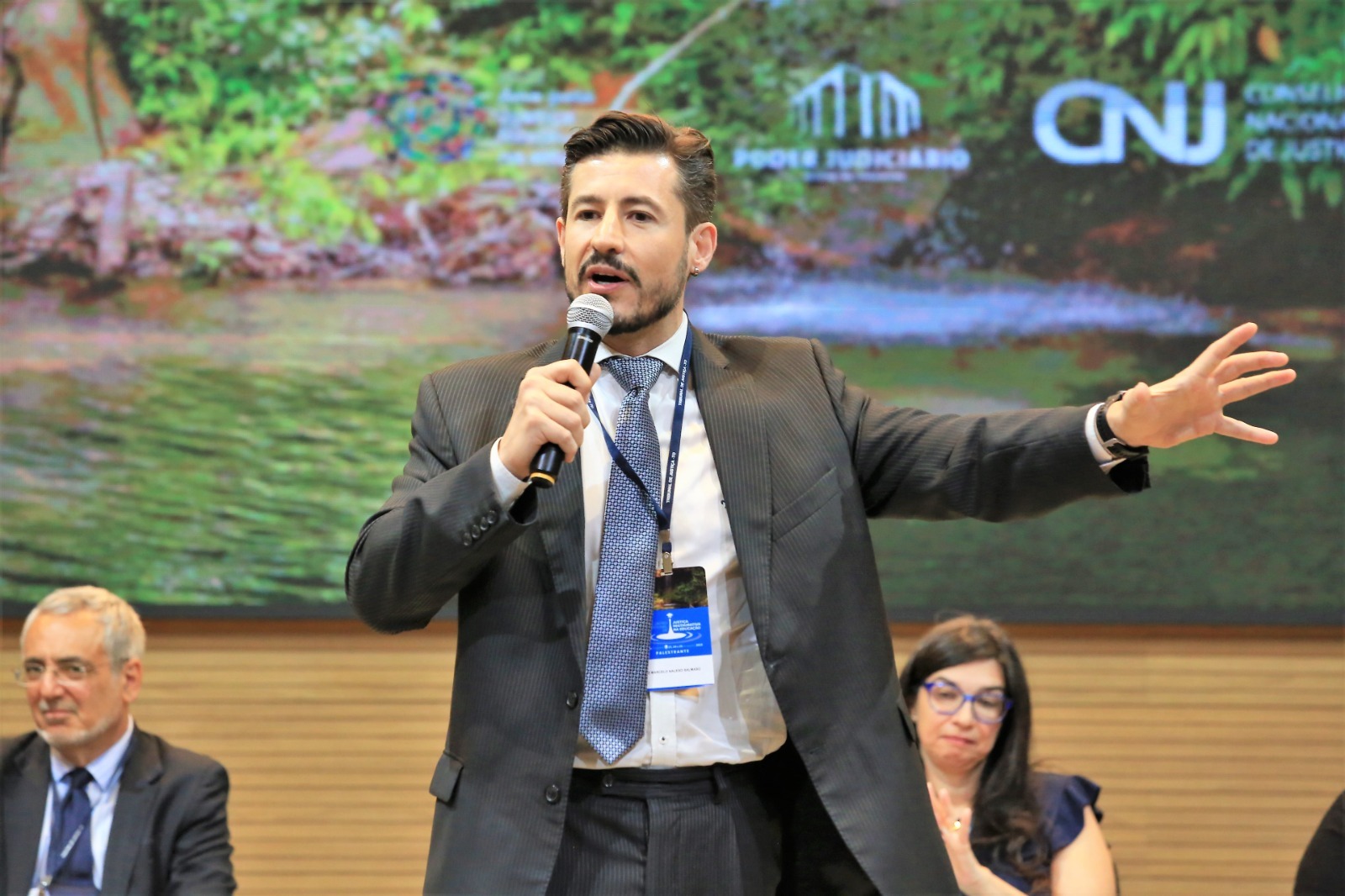
The importance of relationships and a community network for building a culture of peace was also highlighted by the Judge of the Court of Justice of the State of São Paulo and member of the Management Committee of Restorative Justice of the National Council of Justice (CNJ), Marcelo Naleso Salmaso, during the lecture about The Importance of Networking, given on Thursday (August 24th), as part of the program of the 1st National Meeting of Restorative Justice in Education.
"It's in relationships that our value is built, that we emerge," said the Judge, adding that he believes the Restorative Justice is a powerful instrument for changing others "I see that the Restorative Justice has transformed me and from that I can help others to transform themselves too."
It is in this network, in the essence of community, that the Restorative Justice takes place within the school and, according to the magistrate, independently of the Justice System. He said that the CNJ regulates the Restorative Justice for the Judiciary and encourages the Courts of Justice, but it is not just an action for Courts or Judges. "The Judge becomes another author of the Restorative Justice".
In this sense, the speaker stressed that the Restorative Justice at School is made up of people from different sectors, with different visions in order to create new paths that are viable for everyone without exclusion. "It's a new logic of coexistence, based on dialog, coexistence through cooperation and care."
Starting from the principle that it is at school where children and adolescents have a vision of plurality and diverse world views, the magistrate recalled that it is also where conflicts arise. "Conflicts are normal, what can't be normal is to resolve conflicts with violence," which is why it is necessary to "work on transforming coexistence within the school, in which the whole community is involved as protagonists."
Norm that becomes reality
The Proposal for the Restorative Justice in Education of CNJ was the subject of a lecture by Federal Judge and member of the Management Committee of Restorative Justice of CNJ, Katia Herminia Martins Lazarano Roncada, who explained that the project was based on the Resolution 458, which standardized what was already a reality and encouraged the expansion of Restorative Justice actions in the context of the school environment.
The Judge said that the project is the result of a collective effort, and that this is the first time that the CNJ has gone into the field to take action. She also stressed that this is not an emergency measure to contain the attacks suffered by the judiciary, but a profound proposal for transformation. "We need to work on the ambience of the school, its surroundings, with a view to transformation"
She made it clear that the proposal of CNJ is not just a practice, it is a project to transform coexistence "it's not just a methodology or a search for conflict resolution."
The proposal starts with an invitation to anyone who wants to connect to the idea and the whole process must be built horizontally, where everyone brings their knowledge to build a whole. "Violence is strategic and what needs to change is our repertoire. When we take responsibility, we can change realities. May our hearts be connected and ready for this movement of transformation."
The first panel was coordinated by the Deputy Director of Esmat, Justice Ângela Issa Haonat, and Professor Christiane de Holanda Camilo, from the State University of the State of Tocantins (Unitins).




